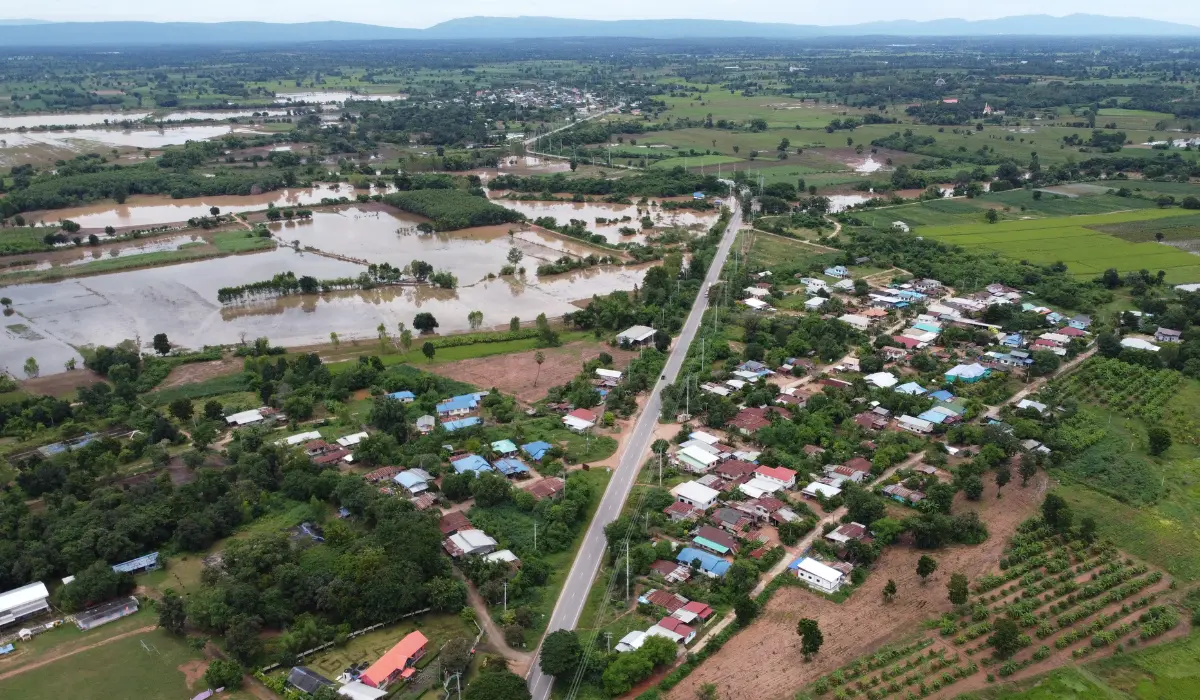Throughout the world, public-private partnerships (PPPs) have become increasingly popular in recent years as a way to address economic, social, and environmental challenges. These arrangements allow the public sector to tap the specialties and economies of scale available to high-performing private enterprises to deliver better public services.
In the Philippines, PPPs have been instrumental in giving the national government and local government units (LGUs) the capacity to address a variety of rural development issues on a limited budget. PPPs have been so successful in the Philippine context that they are now often seen by policymakers as vital to solving infrastructure, public service, employment, and sustainability issues in rural areas.
In this article, we will look at how public-private partnerships have benefited communities in the Philippines, particularly in the underserved parts of the Philippine countryside.
Exploring the Benefits of Public-Private Partnerships for Urban Communities:
1. Improved infrastructure
When private sector partners are selected properly and projects are managed well, PPPs can consistently deliver rural infrastructure projects with fast turnarounds and high standards. This makes PPPs an excellent option for countryside infrastructure projects that public sector organizations may not be able to feasibly deliver on their own.
In the Philippines, PPPs have been used to facilitate everything from the building of new bridges to airport maintenance services. PPPs have already helped improve the quality and quantity of infrastructure in Philippine provinces, particularly in the areas of water and sanitation, digital communications, and transportation.
The recently completed Mactan-Cebu International Airport Terminal 2 and Cebu-Cordova Toll Bridge projects are particularly notable transportation-related PPPs in their scope and scale, accomplishing a vision of provincial connectivity that will benefit Filipinos in the Visayas for decades to come.
See Also: 6 Construction Training Ideas for Sharpening Your Team’s Skills
2. Better access to public services
Facilitating public services tends to become more expensive with decreased population density. Partly for this reason, communities in the Philippine countryside have historically been underserved, as putting sparse public funds in more densely populated urban centers tended to ensure that more people were served per peso spent.
However, this chronic underspending on public services in the countryside has resulted in poor health, education, and quality of life outcomes for many Filipinos, widening the urban-rural divide and creating a host of social issues.
PPPs make it possible for the public sector to engage private businesses to set up facilities and services in the countryside, often at a lower cost than a comparable fully public project. Through PPPs, rural LGUs with limited funds can kickstart the construction of schools, hospitals, and other public service facilities, ensuring that their constituents get better access to vital services.
3. Better access to jobs
The Philippine countryside is currently contending with a lack of high-quality jobs, which has resulted in millions of Filipinos migrating to heavily populated urban centers and overseas destinations.
The low salaries and lack of job variety can result in a low quality of life for those who choose to stay in the countryside while also making it difficult to save money, start a business, or build a better life for future generations. This is all further exacerbated by a lack of access to infrastructure and services.
PPPs can help alleviate issues with rural underemployment in several ways. First, they can do this directly through local investment, employing locals in their project. Second, the development of local infrastructure and services under PPP contracts can stimulate local economies, leading to the creation of new jobs.
Lastly, private entities in PPPs can also support local education and upskilling initiatives that enable less-privileged Filipinos to seek better employment or engage in value-creating entrepreneurship.
Related: How to Be an Effective Construction Project Manager
4. Improves access to sustainability technologies
Many rural Philippine communities are currently under threat from climate change as well as ground and water pollution. Given this, development projects in the countryside must be implemented in a way that helps prevent the additional degradation of the surrounding environment. Unfortunately, rural communities often lack the resources to reliably implement the latest sustainability technologies and practices.
Wider public engagement with private entities through PPPs may provide part of the solution. Private businesses can work with LGUs and other local stakeholders to provide sustainable infrastructure, educate locals on sustainability best practices, and create initiatives that help safeguard surrounding environments.
Working together, local communities and private businesses can arrive at win-win solutions that not only ensure wider economic development but also preserve the surrounding environment for future generations.
Final Thoughts
Public-private partnerships are a proven way for cash-strapped rural communities to obtain vital infrastructure and services that would otherwise be completely inaccessible. Through PPPs, national government bodies and LGUs can engage highly specialized private entities to deliver low-cost, high-quality public works and services to underserved Filipinos.
When managed properly, PPPs can completely transform rural communities and ensure that Filipinos in the countryside enjoy a quality of life and opportunities close to those of their urban counterparts.
Harry O’Neill writes about all things tech, SaaS, and marketing at Solution Suggest. He’s known for turning complex ideas into clear, actionable insights. With experience working alongside top-tier companies worldwide, he helps brands connect with their audiences through content that drives real results.





















